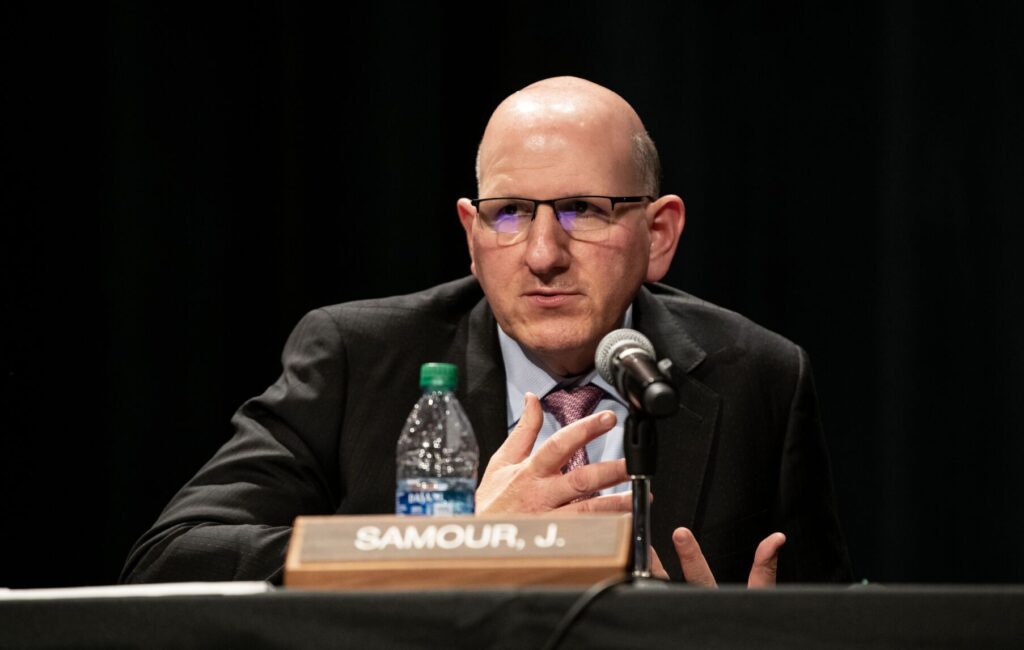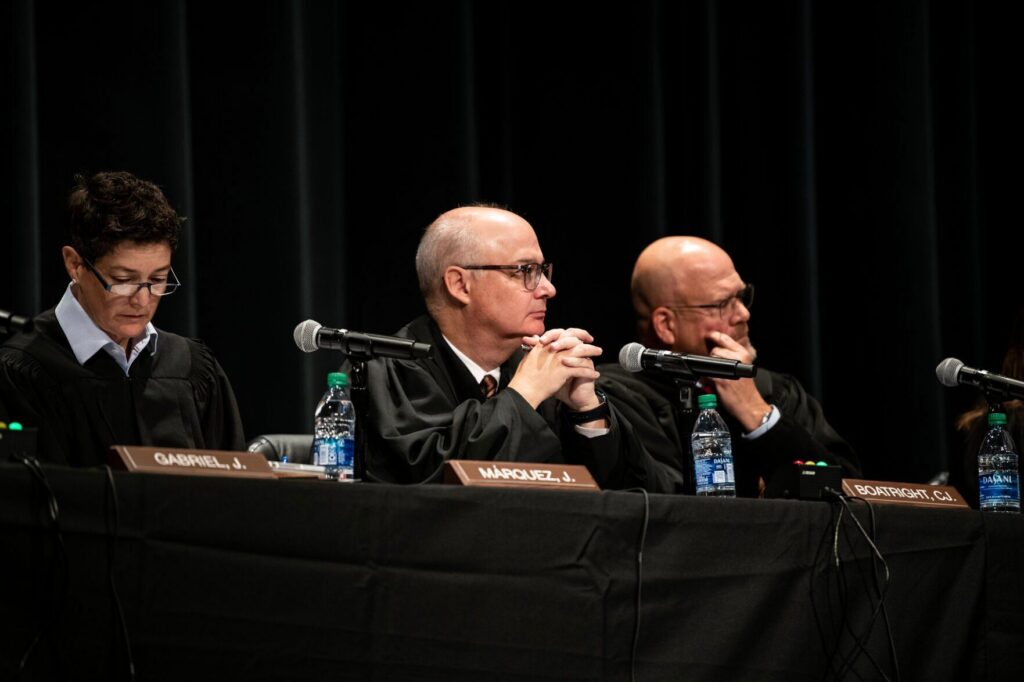Federal judge finds no improper influence on case from colleague’s financial conflict

A federal judge has found his colleague’s undisclosed financial conflict of interest had no influence over the ruling in a debt collection lawsuit against Wells Fargo.
U.S. District Court Senior Judge John L. Kane, without prompting from any party to the lawsuit, issued a decision on Friday following his independent review of Dennis Obduskey’s 2015 complaint against Wells Fargo and the McCarthy Holthus law firm. Obduskey alleged the defendants violated the the Fair Debt Collection Practices Act while carrying out foreclosure proceedings on his home.
Although Obduskey’s lawsuit reached the U.S. Court of Appeals for the 10th Circuit and also the U.S. Supreme Court, Kane took the extraordinary step of initiating his own audit in response to revelations last fall that the original judge in the case, R. Brooke Jackson, was one of 131 federal judges nationwide who handled civil lawsuits despite owning a financial stake in one of the corporate parties to a case.
The Wall Street Journal initially broke the news of the conflicts of interest, noting at least 36 instances in which Jackson failed to recuse himself as the law requires. Jackson, a 2011 appointee of the Obama administration, undertook his own review of his cases and discovered additional conflicts, which Colorado Politics in turn examined this year.
Federal law governing recusal indicates that judges must disqualify themselves if they or their spouses have a financial stake in a case. Judges also have a duty under the law to reasonably inform themselves about their financial interests. While apologetic for his failure to conduct himself accordingly, Jackson also explained that he remained in the dark about his finances and that his wife prepared the financial disclosure reports.
Jackson directed the clerk of the U.S. District Court to notify the parties of the revelations of non-recusal. In five instances, litigants asked for another judge to review Jackson’s handling or indicated they would explore their options. Obduskey’s lawsuit, which unfolded as Jackson’s wife held shares of Wells Fargo, was one such case.
Obdusky was not pleased with either Jackson’s failure to comply with the rules or Kane’s decision to issue an unsolicited order in the case.
“As the public is told time and again, the law is the law and ignorance of it is no excuse. If that applies to the public, it most certainly must apply to the guardians of justice,” he told Colorado Politics on Monday.
Obduskey defaulted on a home loan for which Wells Fargo was the servicer. Beginning in 2013, Wells Fargo or its representative posted notices on Obduskey’s door, and the company hired McCarthy Holthus to initiate foreclosure proceedings outside of court. The firm sent Obduskey a letter saying it “MAY BE CONSIDERED A DEBT COLLECTOR ATTEMPTING TO COLLECT A DEBT.”
Obduskey sued for a violation of federal debt collection law after he asked for verification of the debt and allegedly failed to receive it. He also asserted an unfair or deceptive trade practice under the Colorado Consumer Protection Act.
Jackson dismissed the lawsuit after deciding neither Wells Fargo nor McCarthy Holthus qualified under the law as debt collectors. A three-judge panel for the 10th Circuit upheld Jackson’s determination in 2018. One year later the Supreme Court considered the appeal, now only involving McCarthy Holthus, and the justices unanimously agreed with the lower courts on the whole.
Following the WSJ’s reporting, the clerk’s letter about Jackson’s undisclosed financial conflict prompted Obduskey to write back saying he needed more time to consider his options. Wells Fargo indicated it saw no need to reopen the case.
Kane, a Jimmy Carter appointee who analyzed and upheld Jackson’s rulings in two other cases with conflicts, decided to look at Obduskey’s case to determine whether Jackson’s failure to follow the law was prejudicial toward Obduskey. He indicated he wished to save Obduskey the trouble of writing a motion that would not ultimately result in a different outcome.
“To put this matter in a stark comment: Twelve other judges, three on the Court of Appeals and nine on the Supreme Court, gave this case a fresh look unhindered by an appearance of impropriety at all,” Kane wrote in his April 15 order. “While Judge Jackson’s failure to recuse is sufficient to warrant this examination by another judge, I find his undisclosed stock interest in Wells Fargo could not have had any influence or caused any prejudice to Mr. Obduskey. Consequently, there is no useful purpose in reopening this case.”
Obduskey found Kane’s analysis problematic and said he will now need to determine how to seek “a more appropriate review” of Jackson’s work.
The case is Obduskey v. Wells Fargo et al.














